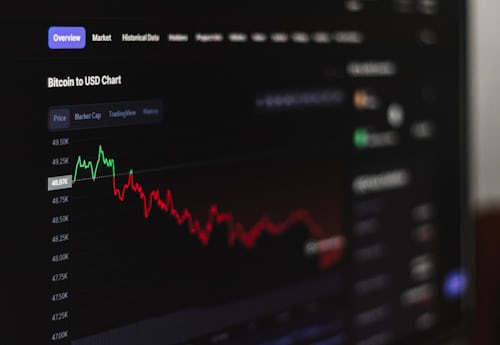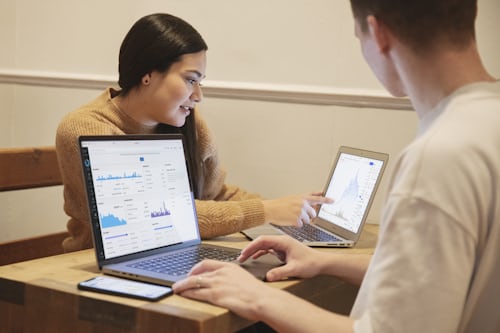What should you look after when you are choosing a new broker
What good is the most beautiful ETF you have found if it is not listed with the broker of your choice and cannot be bought there? Exactly, nothing! Therefore, it is all well and good to look at the various ETFs, but it is always important to check whether the broker actually carries the security. Of course, this should be checked in advance to avoid a sad awakening later on.
Appropriation of income
In the case of the appropriation of earnings, a decision is made as to what should happen to the earnings (dividends, interest). Should they be distributed (distributing ETFs) or reinvested (accumulating ETFs)? With distributing ETFs there is a psychological advantage, because here the investor sees at regular intervals (once a quarter? once a year?) that his ETF also yields income. However, this is not clever, because what happens to these returns then? The investor then has to think about it again and in a savings phase it should be about investing as much as possible and not always having to make new investment decisions. So the accumulating variant is the better one in the long term, if the income is always reinvested in the same way.
Tax-simple / non-tax-simple
There are tax-simple brokers who have a registered office or branch in Austria and therefore also take care of the correct taxation of the ETF. Even if it is a distributing ETF, it could happen that it also has income equivalent to distributions. If the provider is in Germany, it takes care of the correct taxation, while the foreign provider does nothing and the investor is responsible for paying the correct tax. How complex this topic can be is shown in the article on the topic of "income equivalent to distributions" or on the topic of taxation of income or losses on securities accounts abroad - an approach to this topic.
Trading costs
Of course, costs should not be forgotten, because high costs for trading ETFs reduce the return. Free CFD are only available at https://exness-ch.club/ and even here only for a part and for this part there are then ATC (Additional Trading Costs). This means a larger spread on the purchase price, so it is not completely free of charge either. With savings plans in general, you have to consider what is cheaper, regular saving or a trade now and then at normal fees and on the stock exchange. As is well known, market timing is not the thing for private investors and so buying at the time when money is available is probably not a wrong thing to do.
If the trading fees are 1.50 euros fixed plus 0.175% variable, for example at DADAT, and 100 euros are invested in an ETF per month, the fees amount to 1.675 euros. In percentage terms, this means 1.675% in fees, which reduce the return month after month due to these fees. However, don't be fooled by providers offering free ETFs, because these free ETFs can be subject to charges again just a few months later.
Conclusion
Which ETF should you buy? At the beginning it is important for you to find out which strategy you want to pursue. Criteria such as the fund volume, the age of the fund, the running costs and, importantly, whether it is a reporting fund are already a few important criteria that play a role in choosing the right ETF.
When choosing a broker, it is also important to consider whether the broker has this ETF in its programme at all and, in particular, if a savings plan is desired, does this broker have this savings plan in its portfolio? Attention should be paid to brokers abroad, because here the tax has to be paid by the customer, which can be more time-consuming and should not be forgotten when choosing the right broker.


